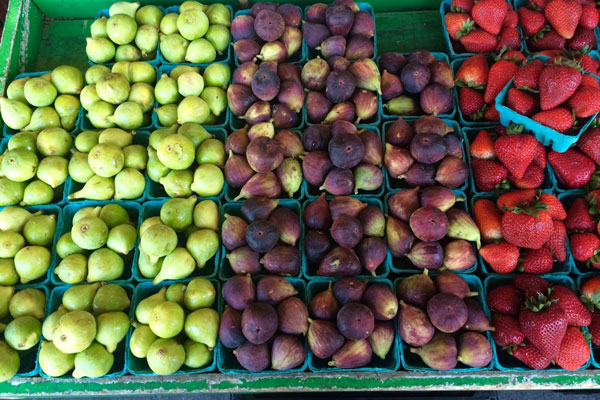In 1986, the seeds for what is now a ground-breaking movement in the food industry were planted in the town of Bra, Piedmont in Northern Italy. Following events a few years prior, forward thinking activist, Carlo Petrini, was passionate about changes in the way Italy, and ultimately, the world, viewed fast food and the concept of nutrition itself.
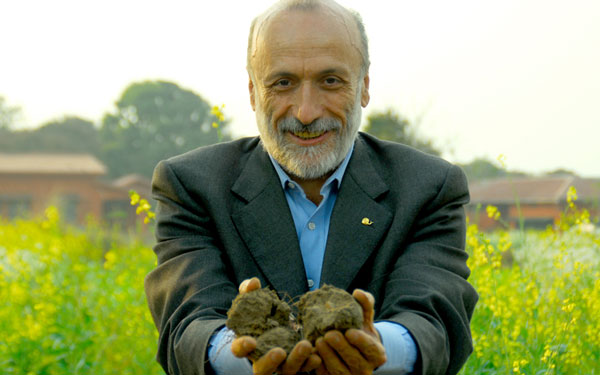
(Image source: www.urgente24.com)
Two significant events in Italy prompted Petrini to realize things had to change. The first, being the tragic deaths of 19 people who drank cheap wine, cut with methanol. And the second, being the opening of the first McDonald’s in Italy, which sparked outrage across the country. People feared the opening of the American fast food chain would have detrimental health effects on the region.
As Petrini observed people protesting in the streets to no avail, he knew there had to be a different approach to combating the fast food epidemic. And, if he didn’t act fast, interest in the fundamentals of food would slowly disappear, with local food businesses and the rich traditions associated with them. People’s health would be negatively affected by how mass production companies produced unhealthy, unnatural foods.
The Slow Food Organization
Petrini founded the ‘Argicola’ organization in 1986, with the hopes of spearheading real change. Promoting local foods and the traditional production of food was quickly picked up among locals and spread. By 1989, ‘Argicola’ was rebranded as ‘Slow Food‘, and the founding manifesto was signed in Paris. Today, ‘Slow Foods’ has over 100,000 members in more than 150 countries.
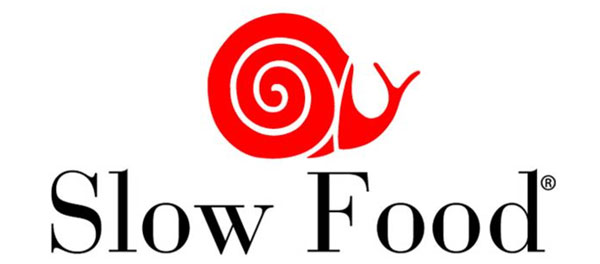
What began as a modest movement to emphasize the necessity of local and traditional food, has grown into so much more. The Slow Food organization tackles some of the most challenging issues facing consumers, small businesses, and the food economy. The best way to understand the way the Slow Food organization operates is to look closely at the problems they tackle each day. What Petrini foresaw in 1986 was that companies were ignoring the consumer entirely for making more money. A prime example of this today would be corporate farming.
Combatting Corporate Farming
Corporate farming refers to large farming companies that own or influence farms and agricultural practices on a large scale, versus locally owned farms which produce naturally grown products on a much smaller scale. Petrini even claims the current corporate farming food system is criminal, and that “if you don’t change it, it will kill you.” This is because corporate farming is geared toward mass production, which would rather increase quantity of product than quality. Plus, the vast chemicals used in corporate farming soil are severely damaging because they make food grow at unnatural rates.
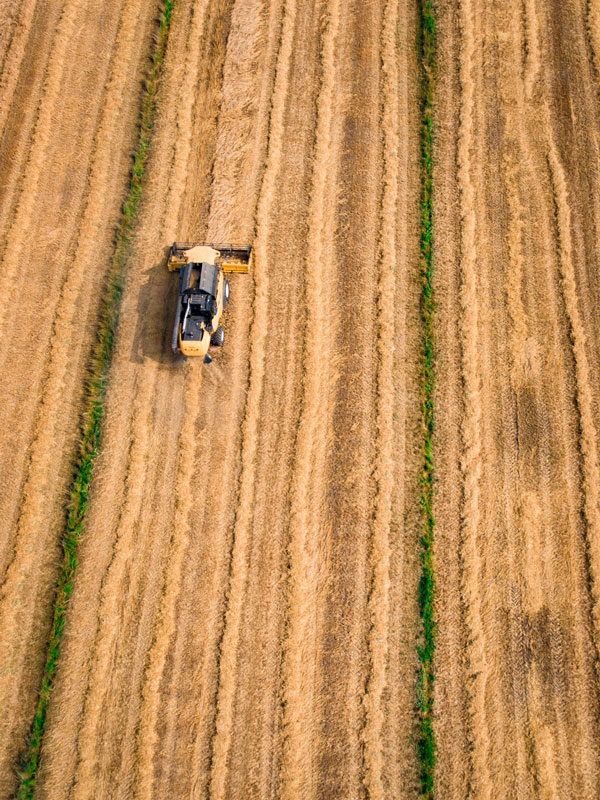
To sustain their large scale production, corporate farming companies use massive amounts of water, causing a global water shortage. Corporate farms are also known for not paying their farmers enough, resulting in an overworked labor force. And, an even more distressing result is that the agricultural world has become less biodiverse in the past 150 years, as species of plants slowly go extinct.
Petrini believes these problems are just a scratch on the surface. In reality, they reflect larger, political issues, because corporate farming companies are essentially monopolies on food production and sales. Therefore, the Slow Food organization has dedicated itself to fight against corporate farming by encouraging their members to focus on and promote local farmers and food businesses instead. The main concept behind their movement because the world’s natural resources can, and will run out if we aren’t careful with them.
The Eataly x Slow Food Collaboration
As buzz surrounding the ‘Slow Food’ organization’s compassionate cause spread, one person found the concept intriguing. Petrini’s longtime friend, Oscar Farinetti, had began his own food business called Eataly in the early 2000’s. After realizing the significant benefits of ‘Slow Food’ associated products, including that they were cleaner from chemicals, locally grown and overall better quality, Farinetti was on board. To promote the ‘Slow Food’ cause, Eataly partnered with small, local Italian producers, causing its popularity to grow at rapid rate. Farinetti is set to open up his 21st location in the coming months.
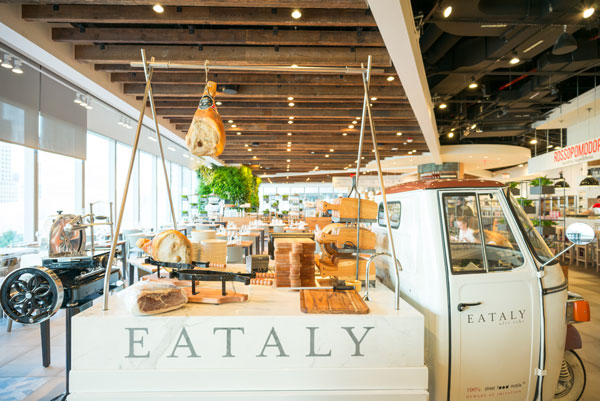
(Image source: www.ny.eater.com)
Eataly has become one main supporter of the Slow Food organization, stocking many locally grown, protected foods from ‘Slow Food’ firms. Local products, such as the oil from Western Liguria, wines from Piedmont, and Gragnano durum-wheat pasta exemplify the natural clean food the two organizations are committed to provide. Mr Farinetti exclaims, “[The idea is not just selling food but] increasing the percentage of people who eat with awareness, choosing high-quality products and paying special attention to the source and processing of raw materials.”
Bringing About Future Change
Although it was founded over 30 years ago, the Slow Food movement is only just beginning. Petrini believes that with enough drive, the food system of today can be eradicated for a more sustainable and healthy alternative. To facilitate this change, the process starts at the grassroots level. If one person commits themselves to the cause, and stops indirectly supporting corporate farming, by being more aware of the food they put into their body, a chain reaction is bound to ensue.
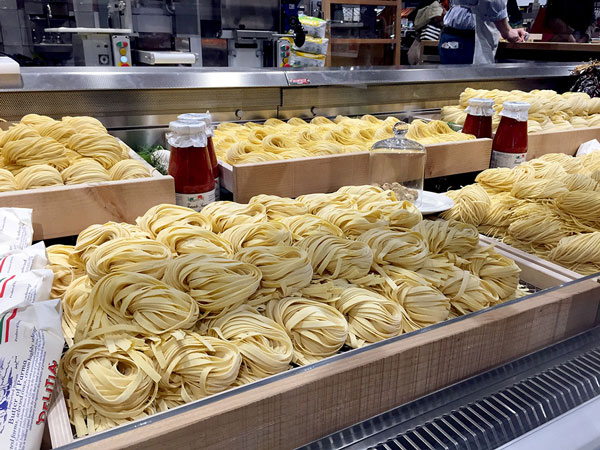
(Image source: www.manfuelblog.com)
Changing the future of the food system could even be as simple as buying your products locally, creating that first step towards not only supporting your local community, but also making healthier choices for yourself. To find local farms and produce near you, check out Agrilicious.
What’s more, just beginning the conversation about the issues with the food system and bringing it to light, is an excellent way to bring awareness to the change that must happen. People cannot change something they don’t know is an issue, and they won’t know unless it’s discussed openly.
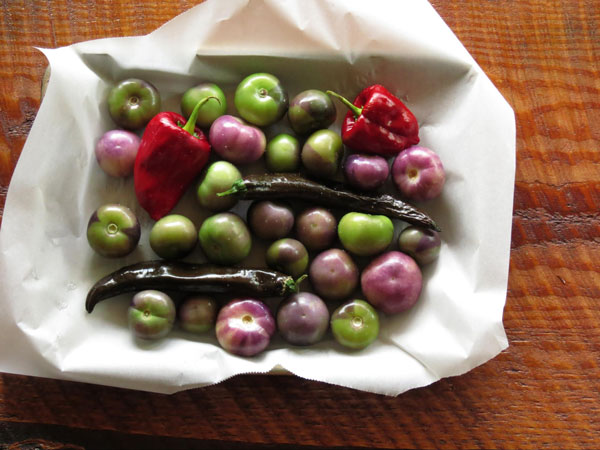
As our modern world presents newer challenges, not acting on these seemingly “small problems” regarding the food system, will only cause them to snowball into a much larger issue. Sometimes, the only way to move forward and be heard is to stand up and talk the loudest about the issue at hand. The Slow Food organization aims to do just that, and, by the looks of their ever-growing organization, achieving success may not be that far-fetched a dream.

